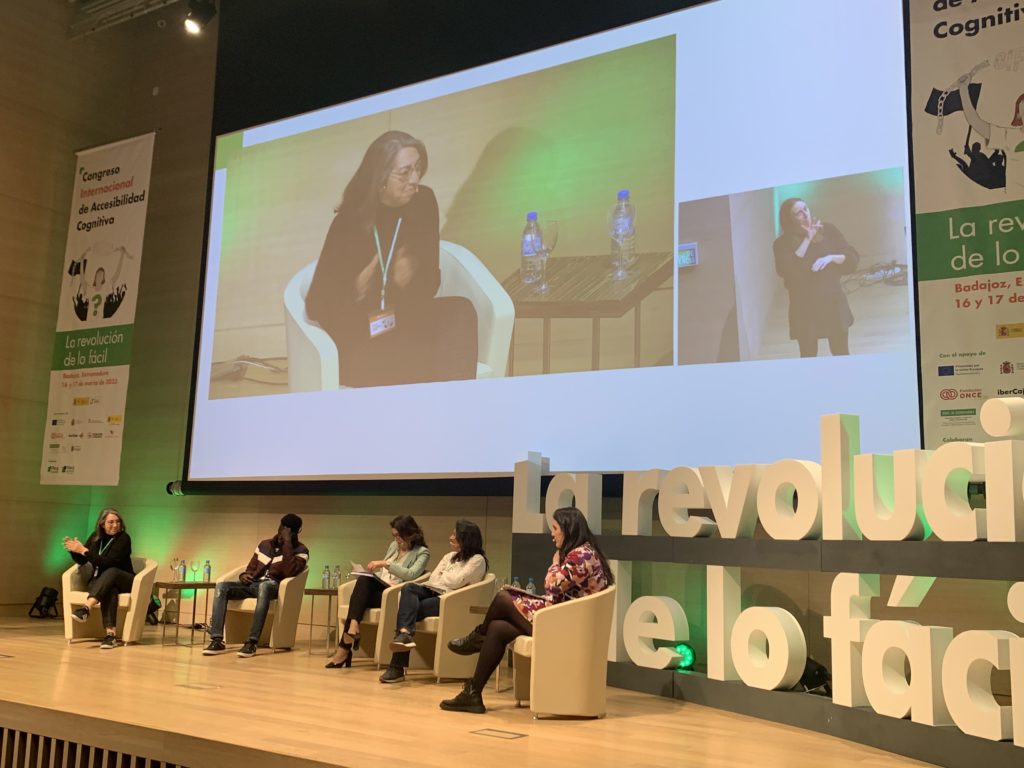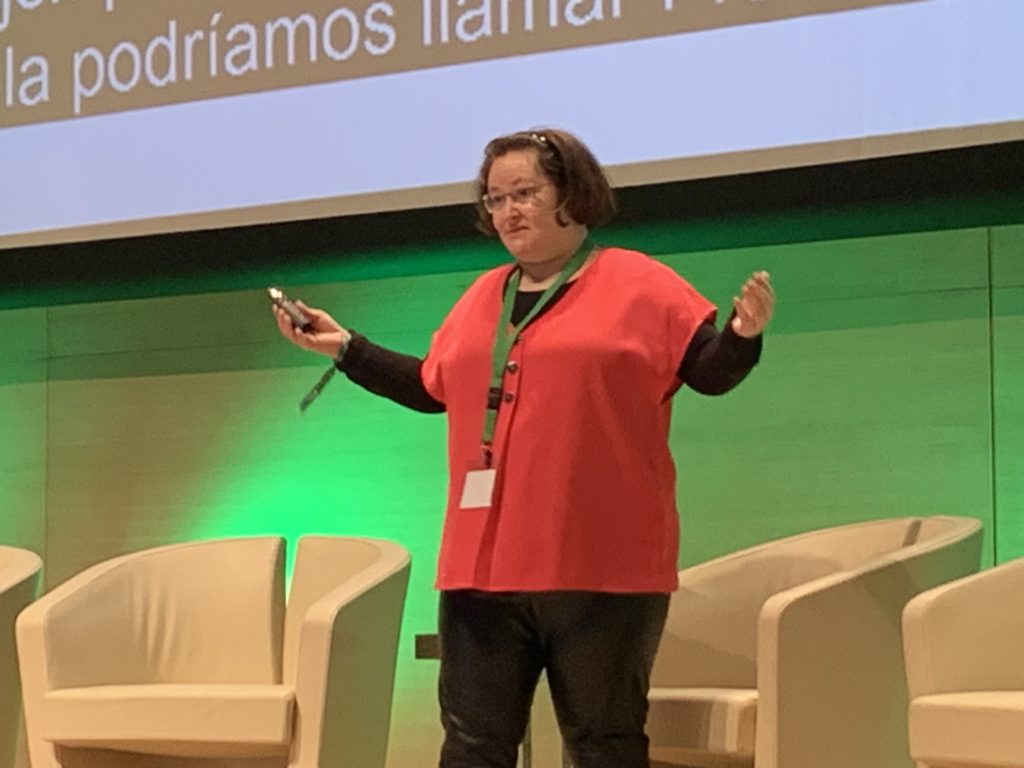Milan Šveřepa was invited to speak at a conference by Plena inclusión, Spain. The conference was about cognitive accessibility. Cognitive accessibility is making sure people can understand information. Here, Milan shares some of his impressions and thoughts from the conference.
I was so looking forward to the conference. Plena inclusión and Spain are doing a lot of work to improve cognitive accessibility in the country. I was keen to learn more about all of that.
The conference was about how to make the world easier to understand.
- 300 people attended the International Congress of Cognitive Accessibility.
- The congress was organised by CEACOG, the Spanish Center for Cognitive Accessibility. Plena inclusión Spain and Plena inclusión Extremadura collaborated on organising it.
- You can read more about the congress in easy-to-read Spanish here.
“Not being able to understand leads to people treating you as not being able to decide about your life, for example heath care,” said Sandra Marques from FENACERCI, Portugal. “It makes you dependent on others in a way you don’t need to be. Accessibility is making sure people can do things without having to rely on others unnecessarily.”

Sandra Marques speaking at conference, other speakers on stage.
- Video-calls system with subtitling, which helps people who are looking for a job.
- Website improving access to assistive technology and tele-care (healthcare done over phone or online).
- Evaluation of pictograms and visual aids using eye-tracking technology.
- Training in easy-to-read.
- All these projects are here.

Raquel Carcamo speaks during conference.
I had the opportunity to speak during the conference too. This is some of what I said:
Clear and understandable communication should be the default for every public administration or organisation.
Technology will play ever bigger role. I used artificial intelligence chat-bot to prepare for the conference, and it helped me research, and made easy read text for me. Anyone can use such technology to make information easy to understand.
As computers can produce the easy to read text now, it is an opportunity to shift focus and resources to supporting people who need it. To support them to use the information: To respond, decide, contribute.
And to support those who need other means than easy read.

“The revolution of easy” was the theme of the conference. Here, the text is written as a graffiti.





